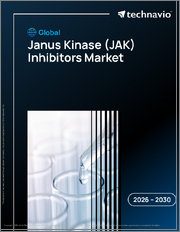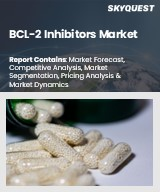
|
시장보고서
상품코드
1546641
CD47 저해제 시장 : 임상시험 인사이트와 시장 기회 전망(2028년)Global CD47 Inhibitor Drug Clinical Trials Insight & Market Opportunity Outlook 2028 |
||||||
세포 표면 단백질 CD47의 저해는 새로운 암 면역 치료 접근법으로 등장하여 최근 학계와 산업계 모두에서 관심을 끌고 있습니다. 암세포는 종종 CD47을 과발현하는데, 이 CD47은 "나를 먹지 마라"라는 신호 경로를 유도하여 악성 세포가 면역 감시를 피할 수 있도록 도와주며, CD47 저해제는 이 단백질을 억제하여 암세포를 제거하여 면역계의 공격, 특히 대식세포의 공격에 취약한 암세포를 제거합니다. 특히 대식세포의 탐식작용이 증가하여 공격받기 쉬운 상태로 만들려고 하는 것입니다. 현재 CD47 저해제는 치료제로 승인되지 않았지만, 임상 3상 시험 중인 후보물질이 있으며, 몇년안에 승인될 가능성이 있습니다.
다양한 개발 단계에 있는 여러 후보물질로 인해 CD47 저해제 연구개발 분야는 빠르게 발전하고 있습니다. 현재 길리어드 산하 포티세븐(Forty Seven)이 개발한 마그놀리맙은 가장 진보된 CD47 저해제 중 하나입니다. 혈액종양을 대상으로 한 초기 단계의 임상시험에서 특히 다른 암 치료제와 병용했을 때 유망한 결과가 도출되고 있습니다. 또한 고형암을 대상으로 한 후기 임상시험에서는 도세탁셀, 니볼루맙, 펨브롤리주맙, 아자시티딘, 베네토클락스 등 기존 암 치료제와 병용하여 매골리맙을 평가하는 시험이 현재 진행 중입니다.
CD47을 억제하는 고친화성 SIRPa 융합 단백질인 ALX Oncology의 evorpacept(ALX148)도 중요한 후보물질입니다. 현재 evorpacept는 다양한 고형암 및 혈액암을 대상으로 한 다수의 초기 임상시험에서 단독요법 및 널리 사용되는 항암제와의 병용요법으로 평가되고 있습니다. 또한 HER2 위암 치료에서 트라스투주맙, 램시맙, 파클리탁셀과 병용하여 에보펩셉트를 평가하기 위한 후기 임상시험이 진행중입니다. TQB 2928(Chia Tai Tianqing Pharmaceutical), MP 0621(Molecular Partners), IMC-002(ImmuneOncia Therapeutics), CC 90002(Celgene) 등 기타 CD47 저해제도 임상 연구의 초기 단계에 있습니다.
현재 중국과 미국 기업이 시장을 독점하고 있지만, 한국, 호주, 캐나다, 일본, 호주, 캐나다, 일본 등의 진출도 늘고 있습니다. 임상 연구를 통해, Shaperon, InnobationBio, Bitterroot Bio, ImmuneOncia Therapeutics등의 기업이 CD47 저해제에서 약진하고 있습니다. 시장 경쟁은 치열해지고 있으며, 여러 기업이 시장 점유율을 확보하기 위해 노력하고 있습니다. 따라서 상업적 성공을 위해서는 안전성 프로파일, 유효성 및 가능한 병용 전략에 기반한 차별화가 필수적입니다.
세계의 CD47 저해제 시장에 대해 조사했으며, 시장의 개요와 약제 동향, 임상시험 동향, 지역별 동향 및 시장에 참여하는 기업의 경쟁 구도 등을 제공하고 있습니다.
목차
제1장 새로운 암 면역치료 표적으로서의 CD47
제2장 세계의 CD47 저해제 임상 파이프라인 개요
- 국가별
- 기업별
- 적응증별
- 환자 부문별
- 상별
- 우선도별
제3장 CD47 저해제 임상시험에 관한 기업, 국가, 적응증, 상별 인사이트
- 연구
- 전임상
- 제I상
- 제I/II상
- 제II상
- 제II/III상
- 제III상
제4장 세계의 CD47 저해제 시장 기회 전망
- 현재 시장 개요
- 향후 전망과 기회
제5장 CD47 적응증별 임상 응용과 개발 전망
- 고형 암
- 조혈 악성 종양
- 미생물 감염증
제6장 CD47 저해제 임상 개발과 국가별 동향
- 중국
- 미국
- 한국
- 호주
- 캐나다
제7장 세계의 CD47 저해제 시장 역학
제8장 경쟁 구도
- Adagene
- ALX Oncology
- ImmuneOncia Therapeutics
- ImmuneOnco Biopharma
- Light Chain Bioscience
- Phanes Therapeutics
- Virtuoso Therapeutics
Global CD47 Inhibitor Drug Clinical Trials Insight & Market Opportunity Outlook 2028 Report Highlights
- Global & Regional Market Opportunity Outlook
- Insight On More Than 100 CD47 Inhibitor Drugs In Clinical Trials
- Global CD47 Inhibitors Clinical Trials Insight By Company, Country, Indication & Phase
- Orphan, Fast Track, Breakthrough Therapy Designation Insight
- Key Drugs Initiation & Completion Year
- CD47 Clinical Application & Development Outlook By Indication
- CD47 Inhibitor Drugs Clinical Developments & Trends By Country
- Global CD47 Inhibitor Drug Market Dynamics
Inhibition of the cell surface protein CD47 has emerged as a novel cancer immunotherapy approach that has piqued the interest of both academia and industry in the recent years. Cancer cells often overexpress CD47, which triggers the "don't eat me" signal pathway, thereby helping malignant cells to escape immune surveillance. CD47 inhibitors seek to uncover cancer cells by inhibiting this protein, leaving them open to immune system attack, specifically through increased macrophage phagocytosis. Although no CD47 inhibitor is currently approved for therapeutic usage, the availability of candidates in phase 3 trials suggests that one may be approved in the coming years.
With multiple candidates at varying stages of development, the field of CD47 inhibitor research and development is rapidly evolving. Developed by Forty Seven, which is now a part of Gilead, magrolimab is among the most advanced CD47 inhibitors. In early stage clinical trials for hematological tumors, it has demonstrated encouraging outcomes, especially when combined with other cancer treatments. Furthermore, late stage clinical trials evaluating Magrolimab in solid cancer alongside conventional cancer treatments such as docetaxel, Nivolumab, Pembrolizumab, Azacitidine, and Venetoclax are now under progress.
Another significant candidate is Evorpacept (ALX148) from ALX Oncology, a high affinity SIRPa fusion protein that inhibits CD47. Currently, evorpacept is being assessed as a monotherapy and in combination with widely used anticancer drugs in a number of early phase clinical trials for a variety of solid and hematological tumors. Furthermore, a late-phase trial evaluating Evorpacept in combination with Trastuzumab, Ramucirumab, and Paclitaxel for the treatment of HER2+ gastric cancer is also under progress. A number of other CD47 inhibitors, including as TQB 2928 (Chia Tai Tianqing Pharmaceutical), MP 0621 (Molecular Partners), IMC-002 (ImmuneOncia Therapeutics), and CC 90002 (Celgene), are in the early phases of clinical research.
The emphasis on combination therapies is undoubtedly one of the key trends in clinical development. Combining CD47 inhibitors with other immunotherapies, targeted treatments, and chemotherapy is being studied in an effort to overcome resistance mechanisms and provide synergistic benefits.
Anticipated growth in the global market for CD47 inhibitors is attributed to the rising cancer incidence and increased use of immunotherapies in the upcoming years. The potential of CD47 inhibitors has been acknowledged by a number of prominent pharmaceutical companies, which has resulted in notable partnerships and acquisitions. The commercial interest in this field is demonstrated by Gilead Science's US$ 4.9 billion acquisition of Forty Seven in 2020 and Pfizer's US$ 2.26 billion acquisition of Trillium Therapeutics in 2021.
Although Chinese and American companies presently dominate the market, there is increasing participation from South Korea, Australia, Canada, and Japan. Through clinical research, companies such as Shaperon, InnobationBio, Bitterroot Bio, and ImmuneOncia Therapeutics are making strides with their CD47 inhibitors. The market is becoming increasingly competitive, with several firms striving for market share. Therefore, for commercial success, differentiation based on safety profile, efficacy, and possible combination strategies will be essential.
The market for CD47 inhibitors has both opportunities and challenges. Strong commercial interest and encouraging clinical evidence point to substantial development potential. However, there are challenges to address, such managing toxicity profiles, coming up with the best combination plans, and demonstrating distinct therapeutic advantages over current treatments. As the field develops, biomarker development for response prediction and patient selection will probably become more crucial for clinical development as well as marketing tactics.
In conclusion, the market for CD47 inhibitors globally is an active rapidly expanding area of cancer immunotherapy. In the years to come, CD47 inhibitors could have a big impact on cancer therapy paradigms because there are several candidates in clinical development and a lot of commercial interest.
Table of Contents
1. CD 47 As Novel Cancer Immunotherapy Target
2. Global CD47 Inhibitors Drug Clinical Pipeline Overview
- 2.1 By Country
- 2.2 By Company
- 2.3 By Indication
- 2.4 By Patient Segment
- 2.5 By Phase
- 2.6 By Priority Status
3. CD47 Inhibitors Clinical Trials Insight By Company, Country, Indication & Phase
- 3.1 Research
- 3.2 Preclinical
- 3.3 Phase I
- 3.4 Phase I/II
- 3.5 Phase II
- 3.6 Phase II/III
- 3.7 Phase III
4. Global CD47 Inhibitor Drug Market Opportunity Outlook
- 4.1 Current Market Overview
- 4.2 Future Outlook & Opportunities
5. CD47 Clinical Application & Development Outlook by Indication
- 5.1 Solid Cancers
- 5.1.1 Breast Cancer
- 5.1.2 Colorectal Cancer
- 5.1.3 Lung Cancer
- 5.1.4 Urogenital Cancer
- 5.1.5 Gastrointestinal Cancer
- 5.2 Hematological Malignancies
- 5.2.1 Lymphoma
- 5.2.2 Leukemia
- 5.2.3 Multiple Myeloma
- 5.2.4 Myelodysplastic Syndrome
- 5.3 Microbial Infections
6. CD47 Inhibitor Drugs Clinical Developments & Trends By Country
- 6.1 China
- 6.2 US
- 6.3 South Korea
- 6.4 Australia
- 6.5 Canada
7. Global CD47 Inhibitors Market Dynamics
- 7.1 Favorable Parameters
- 7.2 Market Restraints
8. Competitive Landscape
- 8.1 Adagene
- 8.2 ALX Oncology
- 8.3 ImmuneOncia Therapeutics
- 8.4 ImmuneOnco Biopharma
- 8.5 Light Chain Bioscience
- 8.6 Phanes Therapeutics
- 8.7 Virtuoso Therapeutics



















